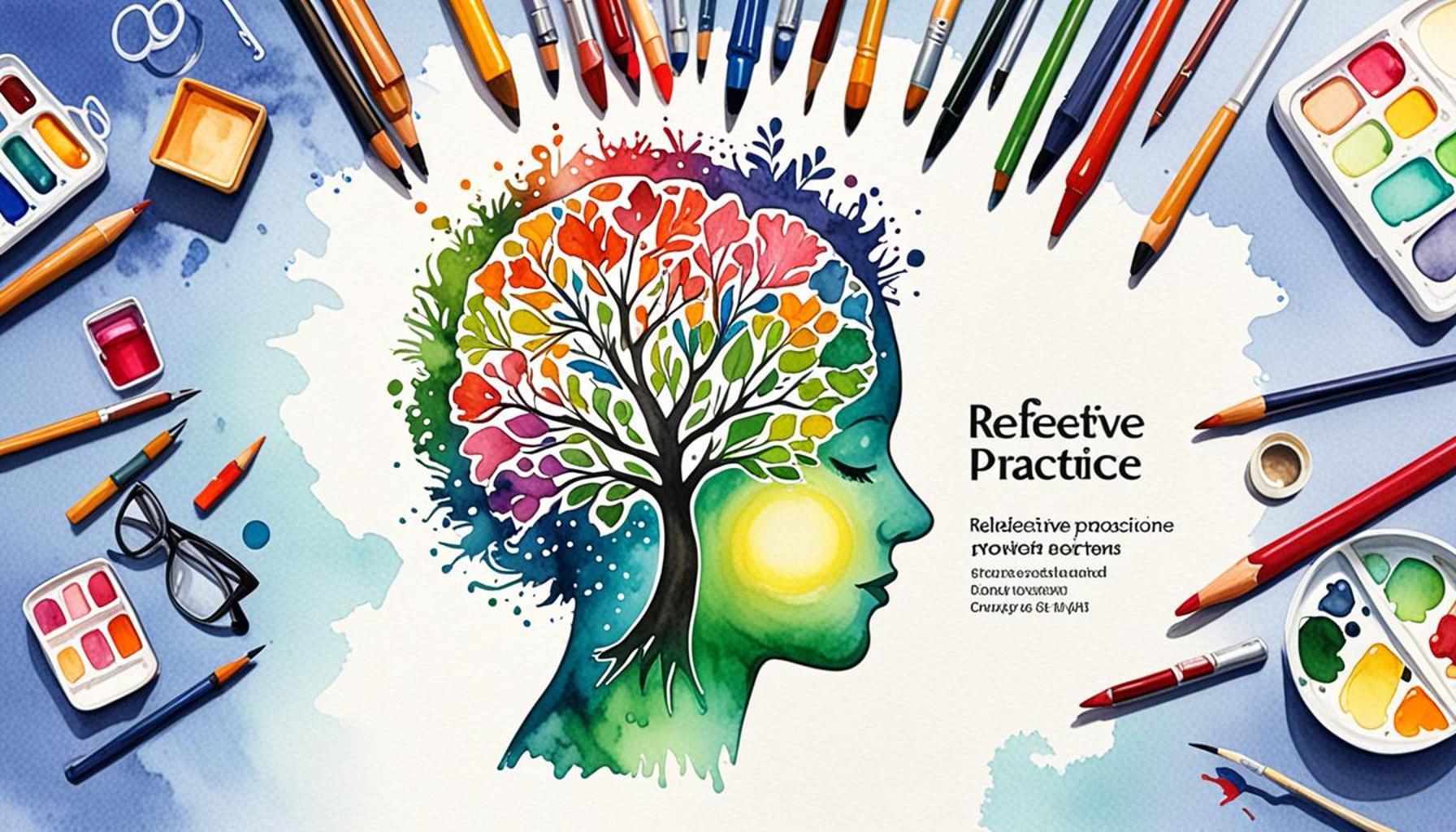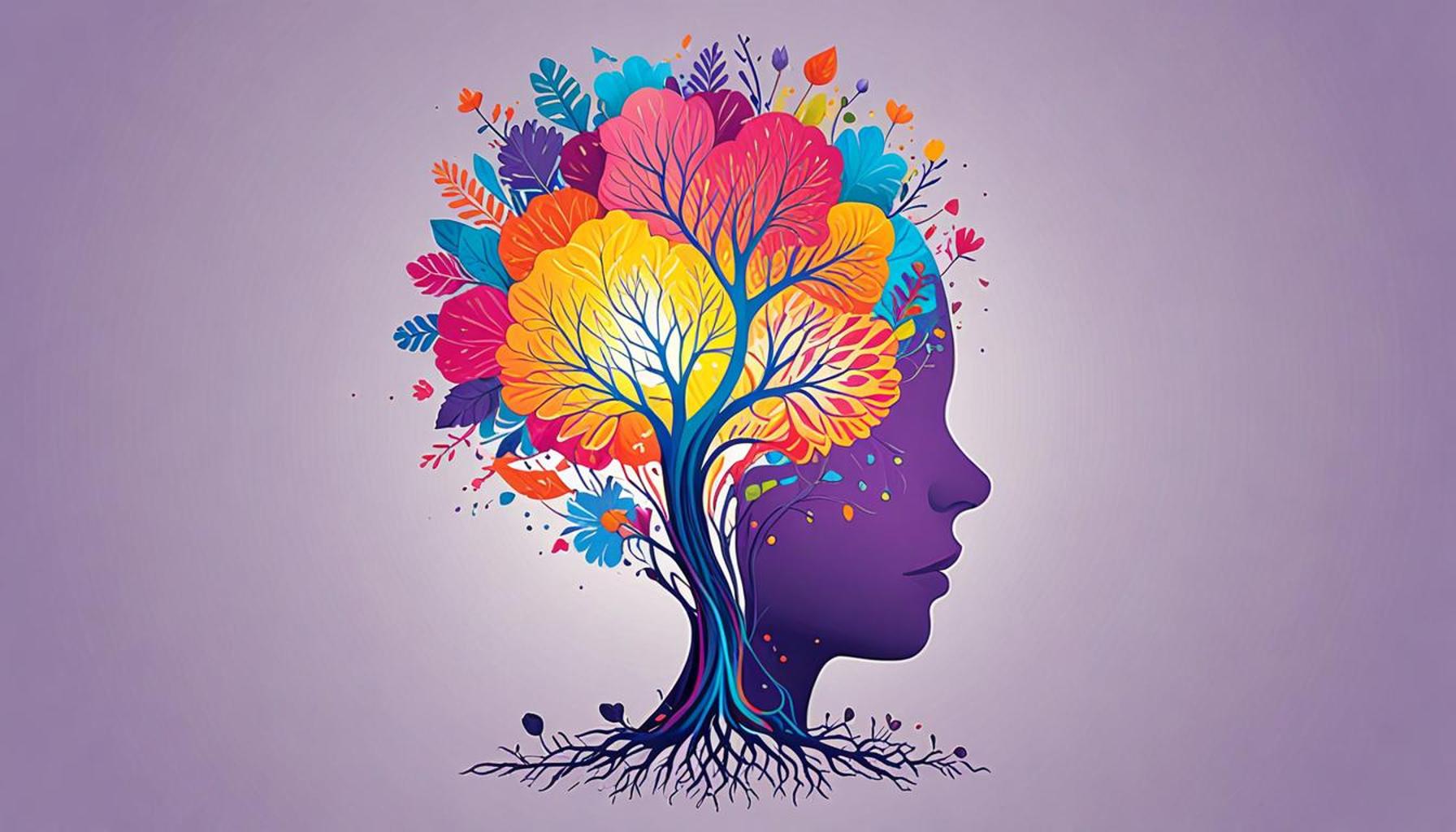Reflective Practice Techniques Overcome Challenges Boost Resilience

The Power of Reflective Practice in Today’s World
In an increasingly complex world, individuals are frequently confronted with challenges that test their mental fortitude and adaptability. Among the various approaches to overcoming these obstacles, reflective practice techniques stand out as powerful tools that foster a growth mindset. This involves embracing self-reflection to analyze experiences, uncover learning opportunities, and ultimately enhance resilience. In this article, we delve into this transformative process.
Embracing Reflection for Personal Growth
Reflective practice empowers individuals through critical introspection, enabling them to learn in profound and meaningful ways. By reflecting on past experiences, people gain a clearer understanding of what went right, what went wrong, and how they can improve moving forward. Regular engagement in reflective techniques serves as a compass to navigate the complexities of daily life.
- Learn from failures: Analyzing setbacks not only provides invaluable insights but also fosters an openness to change and adaptability.
- Enhance self-awareness: Understanding one’s thoughts and emotions is key to making informed decisions and fostering interpersonal relationships.
- Foster continuous improvement: By regularly reflecting on experiences, individuals are encouraged to pursue ongoing personal and professional development.
Top 5 Techniques for Effective Reflective Practice
In this article, we will explore the Top 5 techniques for effective reflective practice. These strategies empower you to face challenges head-on and cultivate resilience. From journaling and mindfulness to seeking feedback and peer discussions, each technique offers a unique approach to reflection. By adopting these strategies, you can shift your perspective and enhance your approach to life’s challenges.
Get ready to dive deeper into strategies that can transform your outlook and equip you to tackle everyday obstacles with renewed vigor!
RECOMMENDED: Check out this similar article

Top 5 Reflective Practice Techniques to Overcome Challenges and Foster Resilience
In both personal and professional realms, growth is often accompanied by a series of formidable challenges. These hurdles test our abilities and, more importantly, our resilience. Resilience—the ability to bounce back from setbacks, adapt well to change, and keep going in the face of adversity—is crucial for success. Reflective practice techniques offer individuals the tools to enhance this capability, turning challenges into stepping stones. Below, we explore the top five reflective practice techniques designed to nurture a growth mindset and empower individuals to navigate obstacles effectively. These techniques range from straightforward methods to more sophisticated strategies, each offering unique benefits for personal development and heightened resilience.
5. Journaling for Reflection
Journaling stands out as a powerful tool for self-reflection, providing an avenue for individuals to express and process their thoughts and emotions in reaction to the challenges they encounter in their daily lives. By establishing a routine of writing, individuals can systematically dissect their internal landscapes.
- Identify Patterns: Journaling facilitates the observation of recurrent themes in one’s experiences, such as what specifically incites stress or happiness. Over time, these patterns reveal profound insights into personal drivers and detractors, acting as a roadmap to understanding oneself better.
- Release Emotional Tension: The act of writing serves as a therapeutic release, allowing individuals to let go of pent-up emotions. This cathartic process can significantly alleviate stress, offering clarity and emotional relief.
- Enhance Problem-Solving Skills: By putting thoughts on paper, individuals can evaluate situations more clearly, leading to innovative thinking and the formulation of creative solutions for challenges that previously seemed intractable.
Incorporating regular journaling can ultimately lead to a deeper understanding of oneself, resulting in improved responses to similar challenges in the future. The transformative power of seeing one’s thoughts and emotions visually can be profound, providing a clearer path for personal evolution.
4. Guided Reflection Sessions
Guided reflection sessions offer a structured environment where individuals can delve into their personal experiences under the guidance of a mentor, coach, or trusted peer. This technique emphasizes collective wisdom and shared understanding, both of which are instrumental in developing resilience.
- Active Listening: These sessions hone the skill of active listening, requiring participants to truly understand and learn from others’ perspectives. Such engagement enriches one’s perspective and is pivotal in grasping diverse methods of navigating challenges.
- Collaboration: Sharing insights and experiences with others not only fosters a sense of camaraderie but also strengthens interpersonal bonds. This collective approach proves crucial in building a support network that can be relied upon during difficult times.
- Honest Feedback: Receiving constructive criticism from others in a supportive environment helps individuals recognize their blind spots and areas in need of improvement. Such feedback is indispensable for personal and professional growth.
Guided reflection sessions, therefore, contribute significantly to self-discovery and the development of resilient support structures. They transform individual challenges into collective learning opportunities, enriching both personal and shared experiences.
3. Mindfulness Practices
Mindfulness practices, such as meditation, breathwork, and yoga, offer a means to cultivate presence and clarity in daily life. These practices ground individuals in the now, helping to allay the anxiety that accompanies uncertainty and stress.
- Stress Reduction: Mindfulness encourages a calm and composed state of being, which can dramatically reduce stress and the tendency to react impulsively to adverse situations.
- Improved Focus: Regular mindfulness practice enhances concentration and attention span, making it easier to focus on essential tasks and decisions.
- Emotional Regulation: Mindfulness equips individuals with the capability to observe their emotions without immediate reaction, allowing for measured and thoughtful responses to stressors.
Integrating mindfulness into daily routines enhances one’s ability to deal with challenges patiently and resiliently, fostering a robust base for reflective and mindful engagement with life’s myriad demands.
2. SWOT Analysis for Self-Reflection
Originally a business strategy tool, SWOT (Strengths, Weaknesses, Opportunities, Threats) analysis can be adapted for personal reflection. This structured approach helps individuals assess their current position and strategize their path forward.
- Strengths: Recognizing personal strengths boosts confidence and enables individuals to leverage these attributes to benefit themselves holistically in personal and professional contexts.
- Weaknesses: Identifying weaknesses is essential, as it highlights areas needing attention or improvement, allowing for targeted development and support.
- Opportunities: Spotting opportunities for growth and learning encourages proactive planning and action-taking, transforming potential challenges into achievable goals.
- Threats: Understanding potential threats provides a valuable perspective on external risks, enabling effective risk management strategies.
Employing SWOT analysis as a reflective exercise provides clear insights, promoting a strategic approach to challenges and opportunities while reinforcing resilience and adaptability in personal and professional growth.
1. Reflective Conversations
Reflective conversations top the list as a robust means of analyzing and learning from experiences. These dialogues allow for deep engagement with one’s own experiences and those of others, opening up avenues for personal growth and insight generation.
- In-depth Engagement: Such conversations promote a thorough analysis of experiences, encouraging participants to delve into the nuances of their challenges and the emotions they evoke.
- Shared Learning: Engaging in discussions with peers facilitates the exchange of strategies and insights, contributing to a collective pool of wisdom from which everyone benefits.
- Accountability: The shared nature of reflective conversations means individuals are often more committed to their personal growth journeys, providing motivation and accountability to stay the course.
Reflective conversations offer a fertile ground for fostering resilience, creating a space where individuals can transform their reflections into actionable insights and meaningful change. Through structured dialogue, individuals not only enhance their own understanding but contribute to the strength and wisdom of their communities.
In conclusion, engaging in reflective practices can significantly enhance one’s resilience when facing life’s challenges. By embracing techniques such as journaling, guided reflection, mindfulness practices, SWOT analysis, and reflective conversations, individuals equip themselves with the tools necessary to not just survive adversity but to thrive through it, leading to lasting personal development and a more robust capacity for handling future challenges.
In the journey of personal and professional growth, the implementation of reflective practice techniques emerges as a vital tool for overcoming challenges and fostering resilience. Reflective practice encourages individuals to critically assess their experiences, emotions, and actions, enabling them to develop a deeper understanding of their responses to various situations. This self-awareness not only enhances decision-making skills but also boosts emotional intelligence, helping individuals navigate complex environments with greater ease and adaptability.One practical way to engage in reflective practice is through journaling. Writing down thoughts and experiences in a structured manner allows individuals to explore their feelings and reactions. This technique promotes a detailed examination of the factors contributing to stress or anxiety, thereby uncovering patterns that can inform future behaviors. For instance, someone facing challenges in a team project may discover through journaling that their communication style inadvertently affects team dynamics. By recognizing this, they can adjust their approach, fostering a more collaborative environment.Moreover, peer feedback is another effective method for reflective practice. Engaging with colleagues or mentors can provide fresh perspectives on issues, illuminating blind spots that may have gone unnoticed. This exchange of ideas not only enhances learning but also builds a support network that reinforces resilience. When individuals feel supported by others, they are more likely to take risks, embrace challenges, and view setbacks as opportunities for growth rather than failures.Additionally, integrating mindfulness practices into reflective techniques further cultivates resilience. Mindfulness encourages individuals to focus on the present moment without judgment, which can reduce the emotional impact of stressors. Techniques such as meditation or focused breathing exercises enhance one’s ability to pause and reflect before responding to a challenge. This intentional pause can be transformative; it allows individuals to approach situations with clarity and composure, instead of reacting impulsively.Lastly, goal-setting tied to reflection can significantly boost resilience. By establishing SMART (Specific, Measurable, Achievable, Relevant, Time-bound) goals, individuals create a clear roadmap for their reflective journey. This structured approach enables them to assess their progress regularly, fostering a sense of achievement that bolsters self-efficacy. As individuals witness how reflective practices contribute to realizing their goals, they develop a robust understanding of their capabilities, reinforcing their resilience against future challenges.In essence, exploring various techniques of reflective practice not only aids in overcoming present challenges but also prepares individuals to face future adversities with a fortified mindset and an enriched toolbox of strategies for resilience. The commitment to ongoing reflection is a powerful catalyst for personal development, steering individuals towards a more adaptive and empowered self.
RECOMMENDED: Check out this similar article
Frequently Asked Questions about Reflective Practice Techniques
What is reflective practice and how can it help in overcoming challenges?
Reflective practice is a method of assessing and thinking critically about one’s actions and experiences to foster personal and professional growth. It involves stepping back from the routine to analyze experiences, recognize patterns, and generate insights. By engaging in reflective practice, individuals can develop a deeper understanding of their strengths and weaknesses, enabling them to approach challenges with a more informed perspective and devise effective strategies to overcome them.
Can reflective practice techniques truly enhance resilience?
Yes, reflective practice techniques can significantly enhance resilience. By regularly reflecting on experiences, individuals cultivate a habit of learning from both successes and setbacks. This process builds a stronger mental framework to deal with future adversities, as it encourages adaptability and problem-solving skills. Resilience is not just about bouncing back; it involves growing from challenges, and reflective practice is a powerful tool in this continuous improvement journey.
Are there specific techniques for effective reflective practice?
There are several techniques to enhance the effectiveness of reflective practice. Journaling is one of the most popular methods, allowing individuals to record their thoughts and feelings in a structured way. Another technique is engaging in regular discussions or feedback sessions with peers, which can provide diverse perspectives. Mind mapping helps in visualizing thoughts and identifying connections between ideas. Incorporating these techniques can deepen insights and promote a holistic understanding of situations, leading to more resilient and informed responses.
How often should one engage in reflective practice?
There is no one-size-fits-all answer to this question; the frequency of engaging in reflective practice depends on individual preferences and needs. Some people benefit from daily reflections, finding that short, consistent sessions allow for continuous learning and adaptation. Others prefer weekly or monthly sessions where they can delve deeper into their experiences. The key is to establish a regular routine that suits your lifestyle, ensuring consistent engagement while leaving room for spontaneous reflection when needed. Consistency in reflective practice helps in reinforcing self-awareness and continuous development.
What are the potential challenges of implementing reflective practice, and how can they be overcome?
One of the main challenges of implementing reflective practice is finding the time amidst a busy schedule. Overcoming this requires commitment and perhaps integrating reflection into existing routines, such as during a commute or before bedtime. Another challenge is the potential discomfort of confronting personal weaknesses. To overcome this, it’s important to approach reflection with a mindset of growth rather than self-criticism. Emphasizing the positive outcomes of reflective practice can cultivate a supportive and productive reflective habit.
RECOMMENDED: Check out this similar article
Conclusion
In navigating the challenges of today’s fast-paced world, the art of reflective practice emerges as a vital tool. This technique not only enables individuals to overcome obstacles but also cultivates resilience—a crucial element in maintaining a growth mindset. In summary, reflective practices, such as mindful meditation, journal writing, and feedback incorporation, serve as essential strategies for continuous personal development.
The article outlined five primary techniques: self-assessment, where individuals evaluate their strengths and weaknesses; critical contemplation, which encourages looking at experiences from different perspectives; mentorship, facilitating growth through experienced guidance; feedback utilization, converting external opinions into constructive action; and progress tracking, which involves monitoring growth and setting future goals.
These techniques, when integrated into daily routines, encourage not only perseverance but also an adaptable mindset that can effectively meet and surpass challenges. They lead to a deeper understanding of one’s capabilities and promote self-awareness by continuously questioning and refining actions, beliefs, and strategies. By fostering these habits, individuals are more likely to develop resilience and the capacity for long-term success.
For those committed to adopting a growth mindset, reflective practice offers powerful mechanisms for personal transformation. With continuous application, these approaches can yield profound insights, paving the way for meaningful change and enduring resilience. It urges readers to delve deeper, investigate the techniques further, and embark on a journey towards personal and professional enhancement.


